|
|
|
|
|
|
|
|
Today's Congressional Action:
The House and Senate are in session. The Senate is not expected to consider Arctic legislation. The House is expected to consider H.R. 3578, the Department of Homeland Security Science and Technology Reform and Improvement Act, among other legislative items.
|
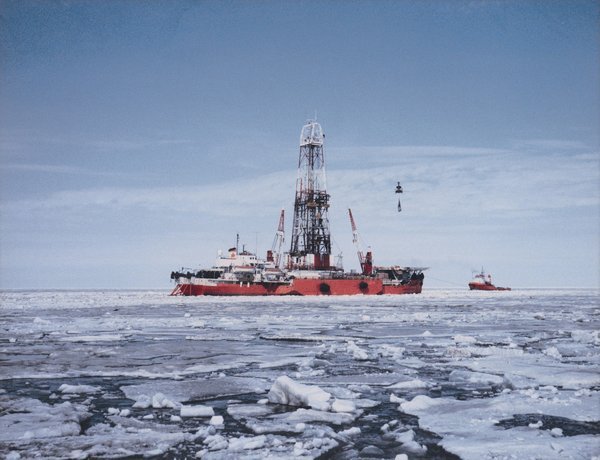 BOEM Staffers Say Rush for Arctic Study Undermined Their Work. When Shell announced it was giving up on its leases in the Arctic Ocean, it blamed, in part, the challenging regulatory climate. But an inspector general's report released today says many government regulators who worked the Arctic lease case felt they were too rushed to provide a rigorous scientific review. The IG report looks at the last Supplemental Environmental Impact Statement for Lease Sale 193. It was the second court-mandated do-over for the study, conducted in 2014 and 2015, long after Shell and other companies already won their leases. Several scientists and supervisors working for the Bureau of Ocean Energy Management in Alaska told investigators they were under such tight timelines leading up to Shell's 2015 drilling season they were unable to do a good job on the study. At least three BOEM employees resigned or retired early over their dissatisfaction, the IG found. Alaska Public Radio BOEM Staffers Say Rush for Arctic Study Undermined Their Work. When Shell announced it was giving up on its leases in the Arctic Ocean, it blamed, in part, the challenging regulatory climate. But an inspector general's report released today says many government regulators who worked the Arctic lease case felt they were too rushed to provide a rigorous scientific review. The IG report looks at the last Supplemental Environmental Impact Statement for Lease Sale 193. It was the second court-mandated do-over for the study, conducted in 2014 and 2015, long after Shell and other companies already won their leases. Several scientists and supervisors working for the Bureau of Ocean Energy Management in Alaska told investigators they were under such tight timelines leading up to Shell's 2015 drilling season they were unable to do a good job on the study. At least three BOEM employees resigned or retired early over their dissatisfaction, the IG found. Alaska Public Radio
On Arctic Day at COP21, Greenland, Nunavut, ICC Issue Joint Statement. With two more days remaining before negotiators at the COP21 climate change talks in Paris hope to sign off on a global agreement aimed at reducing climate change, Inuit leaders and other Indigenous groups are lobbying hard for language in the agreement that protects the rights of Indigenous peoples. Right now, a draft proposal negotiators are considering contains only a passing reference to Indigenous peoples. Nunatsiaq Online
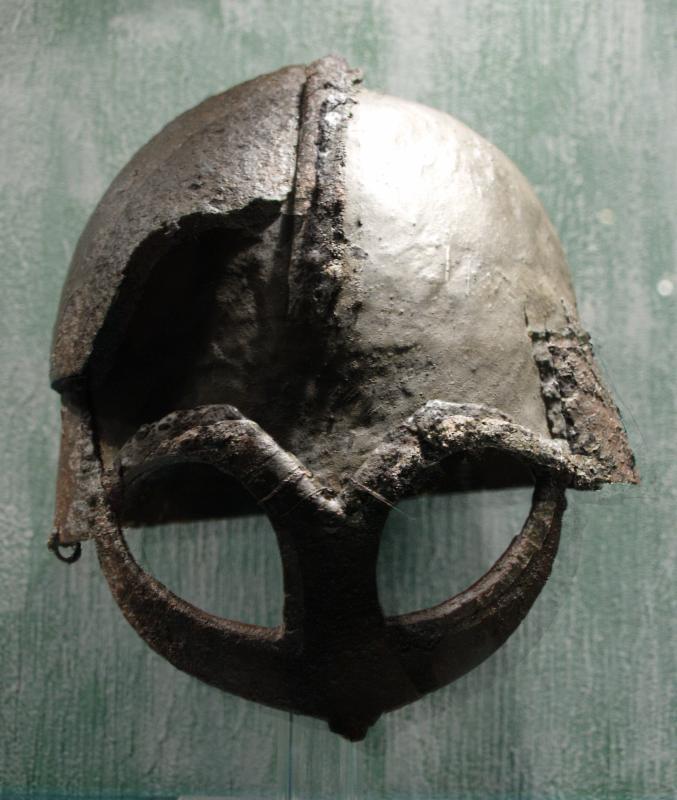 Vikings' Mysterious Abandonment of Greenland Was Not Due to Climate Change, Study Suggests. It has often been cited as one of the classic examples of how changes in climate have shaped human history. Circa the year 985, Erik the Red led 25 ships from Iceland to Greenland, launching a Norse settlement there and giving the vast ice continent the name "Greenland." Within just a few decades, the Norse -- sometimes also dubbed Vikings -- would make it to Newfoundland as well. They maintained settlements of up to a few thousand people in southwest Greenland for several centuries, keeping livestock and hunting seals, building churches whose ruins still stand today, and sending back valuable walrus tusks and other prizes for trade -- until, that is, these settlements were abandoned by the mid-1400s. Anchorage Daily News Vikings' Mysterious Abandonment of Greenland Was Not Due to Climate Change, Study Suggests. It has often been cited as one of the classic examples of how changes in climate have shaped human history. Circa the year 985, Erik the Red led 25 ships from Iceland to Greenland, launching a Norse settlement there and giving the vast ice continent the name "Greenland." Within just a few decades, the Norse -- sometimes also dubbed Vikings -- would make it to Newfoundland as well. They maintained settlements of up to a few thousand people in southwest Greenland for several centuries, keeping livestock and hunting seals, building churches whose ruins still stand today, and sending back valuable walrus tusks and other prizes for trade -- until, that is, these settlements were abandoned by the mid-1400s. Anchorage Daily News
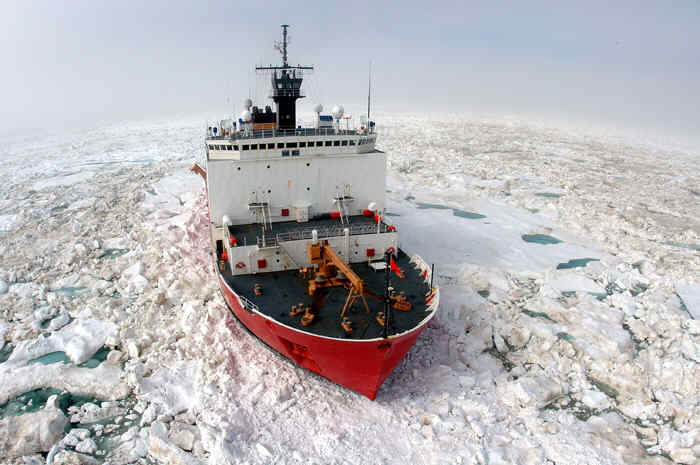 Sen. Angus King Pursues Funding to Add Icebreakers in Arctic. Sen. Angus King of Maine is pushing to add money to the Coast Guard budget for the construction of icebreakers, saying the state's economy would benefit if the United States had more of the ships to maintain Arctic shipping lanes. King said icebreakers are needed to maintain shipping routes in the Northwest Passage as warming global temperatures make shipping there more feasible. Maine's ports stand to gain because they are the closest U.S. ports to the eastern end of the passage, he said. Port News Sen. Angus King Pursues Funding to Add Icebreakers in Arctic. Sen. Angus King of Maine is pushing to add money to the Coast Guard budget for the construction of icebreakers, saying the state's economy would benefit if the United States had more of the ships to maintain Arctic shipping lanes. King said icebreakers are needed to maintain shipping routes in the Northwest Passage as warming global temperatures make shipping there more feasible. Maine's ports stand to gain because they are the closest U.S. ports to the eastern end of the passage, he said. Port News
'Not Enough' USCG Vessels to Meet Demand for Presence in South China Sea, Arctic. The Coast Guard's No. 2 officer said the small size and advanced age of its fleet is limiting the service's ability to carry out crucial missions in the Arctic and drug transit zones or to meet rising calls for presence in the volatile South China Sea. "The lack of surface vessels every day just breaks my heart," VADM Charles Michel, the Coast Guard's vice commandant, said Dec. 7. Addressing a forum on American Sea Power sponsored by the U.S. Naval Institute at the Newseum, Michel detailed the problems the Coast Guard faces in trying to carry out its missions of national security, law enforcement and maritime safety because of a lack of resources. Seapower Magazine
|
Legislative Action
No Arctic legislation was formally considered yesterday.
|
|
Future Events
The State Department will host this event, streamed online, in coordination with the US Center for COP21.
Moderator: Christy Goldfuss, Managing Director at the White House Council on Environmental Quality
Speakers: Dr. John Holdren, Assistant to the President for Science and Technology; and Dr. Patrick Taylor, Research Scientist, National Aeronautics and Space Administration
Arctic Encounter Paris (AEP 2015), December 11-12, 2015 (Paris, France) (During the UN Convention on Climate Change - COP21). The Arctic Encounter Paris (AEP) will take place at the French Senate at Luxembourg Palace and the 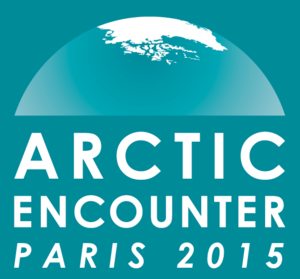 French Military College, ╔cole Militaire, in Paris, France, on the final days of the monumental United Nations Convention on Climate Change (COP21) where thousands of global citizens and government delegates will be gathered to deliberate the world's response to our changing planet in Paris. The AEP is the only Arctic policy and economics side event currently planned to take place during the UN Convention. A reception will take place following the closing panel. French Military College, ╔cole Militaire, in Paris, France, on the final days of the monumental United Nations Convention on Climate Change (COP21) where thousands of global citizens and government delegates will be gathered to deliberate the world's response to our changing planet in Paris. The AEP is the only Arctic policy and economics side event currently planned to take place during the UN Convention. A reception will take place following the closing panel.
 Fall meeting of the American Geophysical Union, December 14-18, 2015 (San Francisco, California). The 48th meeting of the union brings together nearly 24,000attendees, and lots of Arctic research results. The scientific program is here. There will be several Arctic-related "Town Hall" meetings, including those sponsored by NASA, DOE, NSF, ISAC, IARPC, and SEARCH. Fall meeting of the American Geophysical Union, December 14-18, 2015 (San Francisco, California). The 48th meeting of the union brings together nearly 24,000attendees, and lots of Arctic research results. The scientific program is here. There will be several Arctic-related "Town Hall" meetings, including those sponsored by NASA, DOE, NSF, ISAC, IARPC, and SEARCH.
The conference will be devoted to an opening of new academic semester and an upcoming 25 years cooperation between University of Nordland and Baltic State Technical University (St. Petersburg). On the second day the educational project's results "Arctic Bridge: Cooperation on PhD Education and Research Training in the field of Management in Extractive Industries in the High North" will be presented.
"Arctic Matters" day at the National Academy of Sciences, January 14th, 2016 (Washington, DC, USA) This symposium is part of an ongoing initiative of the National Academies of Science Polar Research Board to expand public understanding of why the dramatic changes affecting the Arctic region ultimately matter to us all. The agenda features engaging presentations and discussions with top Arctic science and policy experts, and displays and interactive exhibits that illustrate Arctic change and its global impacts. The event is free and open to the public. There are sponsorship opportunities, and a call for exhibitor applications (by Oct.31, 2015). Audience space is limited, so register today; and please encourage your friends, neighbors, and colleagues to participate-as our goal is to reach well beyond the small circle of specialists who typically attend Arctic-themed events in the DC area. The U.S. Arctic Research Commission is helping to sponsor this event.
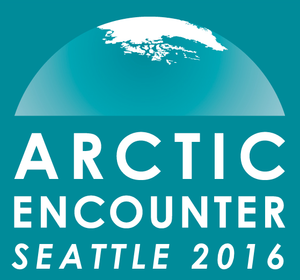 Building upon the preceding Arctic Encounter event in Paris, the third annual Arctic Encounter Symposium (AES) in Seattle, Washington will convene policymakers, industry leaders, and leading experts to confront the leading issues in Arctic policy, innovation, and development. As the largest annual Arctic policy event in the United States, the AES mission is to raise awareness, engage challenges, and develop solutions for the future of a region and a people. The two-day program includes two keynote luncheons, expert plenary sessions, break out sessions, a networking cocktail reception and seated dinner. A closing reception will take place at the conclusion of the program. Building upon the preceding Arctic Encounter event in Paris, the third annual Arctic Encounter Symposium (AES) in Seattle, Washington will convene policymakers, industry leaders, and leading experts to confront the leading issues in Arctic policy, innovation, and development. As the largest annual Arctic policy event in the United States, the AES mission is to raise awareness, engage challenges, and develop solutions for the future of a region and a people. The two-day program includes two keynote luncheons, expert plenary sessions, break out sessions, a networking cocktail reception and seated dinner. A closing reception will take place at the conclusion of the program.
2016 Arctic Frontiers, January 24-29, 2015 (Tromso, Norway).The Arctic is a global crossroad between commercial and environmental interests. The region holds substantial natural resources and many actors are investigating ways to utilise these for economic gain. Others view the Arctic as a particularly pristine and vulnerable environment and highlight the need to limit industrial development. Arctic Frontiers 2016 will discuss the balance between resource utilisation and preservation, and between industrial and environmental interests in the Arctic. Envisioning a well-planned, well-governed, and sustainable development in the Arctic, how can improved Arctic stewardship help balance environmental concerns with industrial expansion? How can the industrial footprints from future business activities be minimised? And last, but not least, what role will existing and emerging technologies play in making industrial development profitable and environmentally friendly, securing a sustainable growth scenario for Arctic communities?
16th Alaska Marine Science Symposium, January 25-29, 2016 (Anchorage, AK, USA). No detailed info yet (common guys...), but a valuable meeting, focusing on research results from the Gulf of Alaska, the Bering Sea, and the Arctic Ocean. Good, in-depth, research from Alaska's marine regions. AMSS.
5th Annual Fletcher Opening Arctic Conference, March 12, 2016. The Opening Arctic Conference builds on the Fletcher School's Warming Arctic International Inquiry series, to bring together high-level thought leaders from across disciplines, Fletcher's hallmark. Staged annually, Fletcher's event continues to address the foreign policy, economic, environmental and security implications of the opening Arctic, while dispelling myths.
14th IATS Seminar, June 19-25, 2016 (Bergen, Norway). The University of Bergen (UiB) is honoured to host the 14th IATS Seminar in Bergen, Norway, from Sunday 19 to Saturday 25 June 2016 in co-operation with the Network for University Co-operation Tibet-Norway, an academic network with the universities of Oslo, Bergen and Troms° as partners. The convenor is Professor Hanna Havnevik, Department of Culture Studies and Oriental Languages, University of Oslo, and Chair of the Network.
ICETECH 2016, August 15-18, 2016 (Anchorage, Alaska, USA). The Arctic Section of the Society of Naval Architects and Marine Engineers (SNAME) together with Alaska's Institute of the North (ION) will host the International Conference and Exhibition on Performance of Ships and Structures in Ice (ICETECH 16), the premiere international conference on ships and structures in ice. The conference will take place in Anchorage starting with an opening icebreaker reception on the evening of Monday, August 15, and concluding in the afternoon on Thursday August 18, with a possible workshop on Arctic EER on Friday August 19.
Inuit traditions are a repository of Inuit culture and a primary expression of Inuit identity. The theme for the 2016 Inuit Studies Conference invites Elders, knowledge-bearers, researchers, artists, policy-makers, students and others to engage in conversations about the many ways in which traditions shape understanding, while registering social and cultural change. The institutional hosts of "Inuit Traditions," Memorial University of Newfoundland and the Nunatsiavut Government, invite you to contribute to an exchange of knowledge to be held in St. John's, Newfoundland and Labrador, October 7-10, 2016. Presentations on all aspects of Inuit studies will be welcome.
|
|

  
4350 N. Fairfax Drive, Suite 510
Arlington, VA 22203, USA
External links in this publication, and on the USARC's World Wide Web site ( www.arctic.gov) do not constitute endorsement by the US Arctic Research Commission of external Web sites or the information, products or services contained therein. For other than authorized activities, the USARC does not exercise any editorial control over the information you may find at these locations. These links are provided consistent with the stated purpose of this newsletter and the USARC Web site.
|
|
|
|
|
|
|
|
|